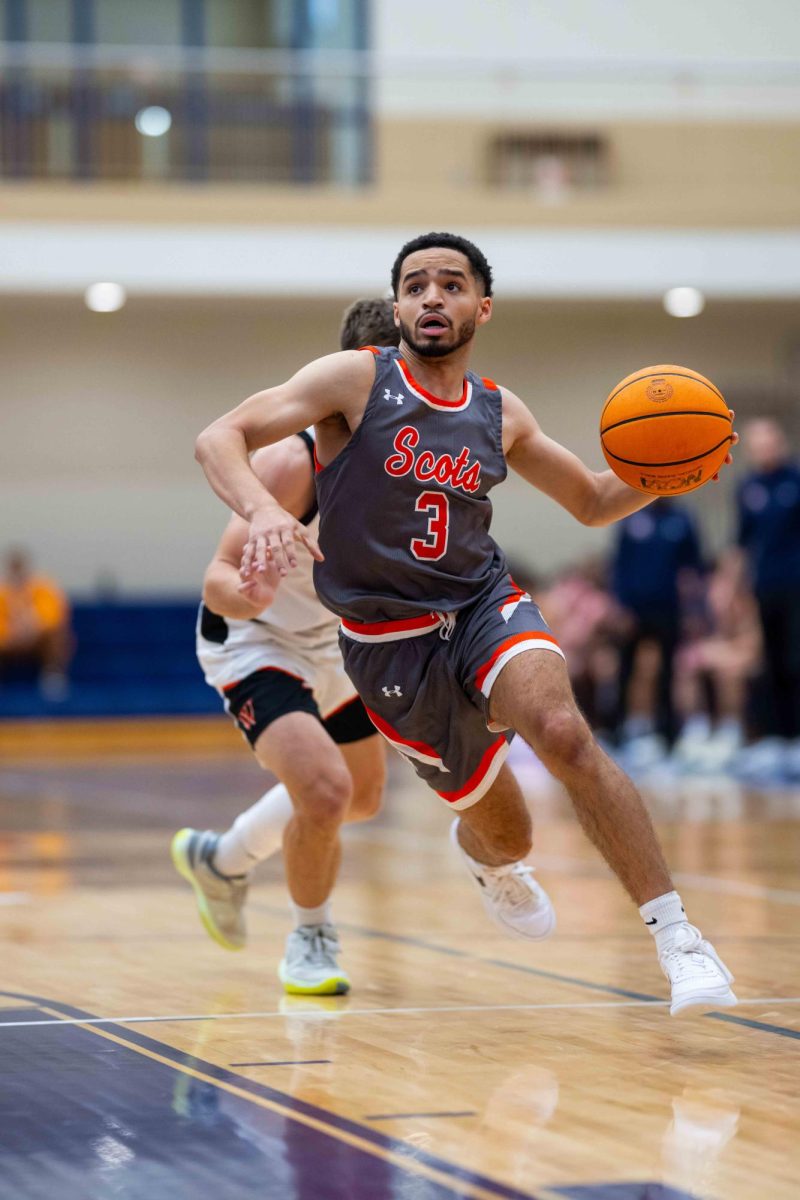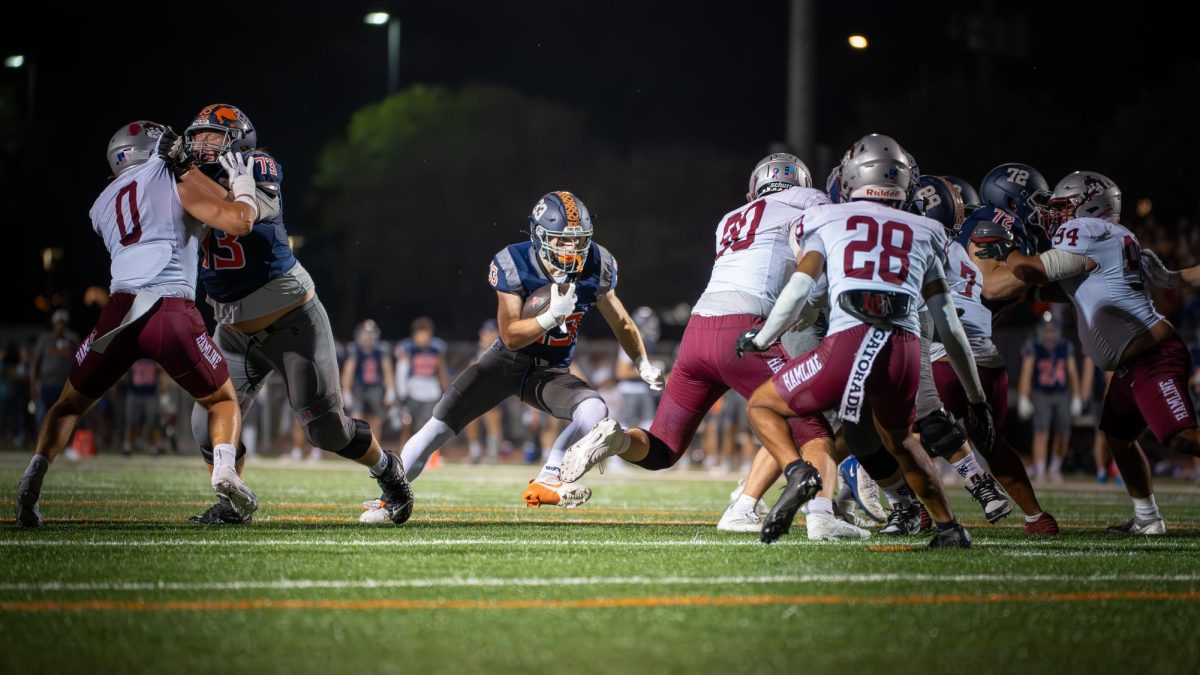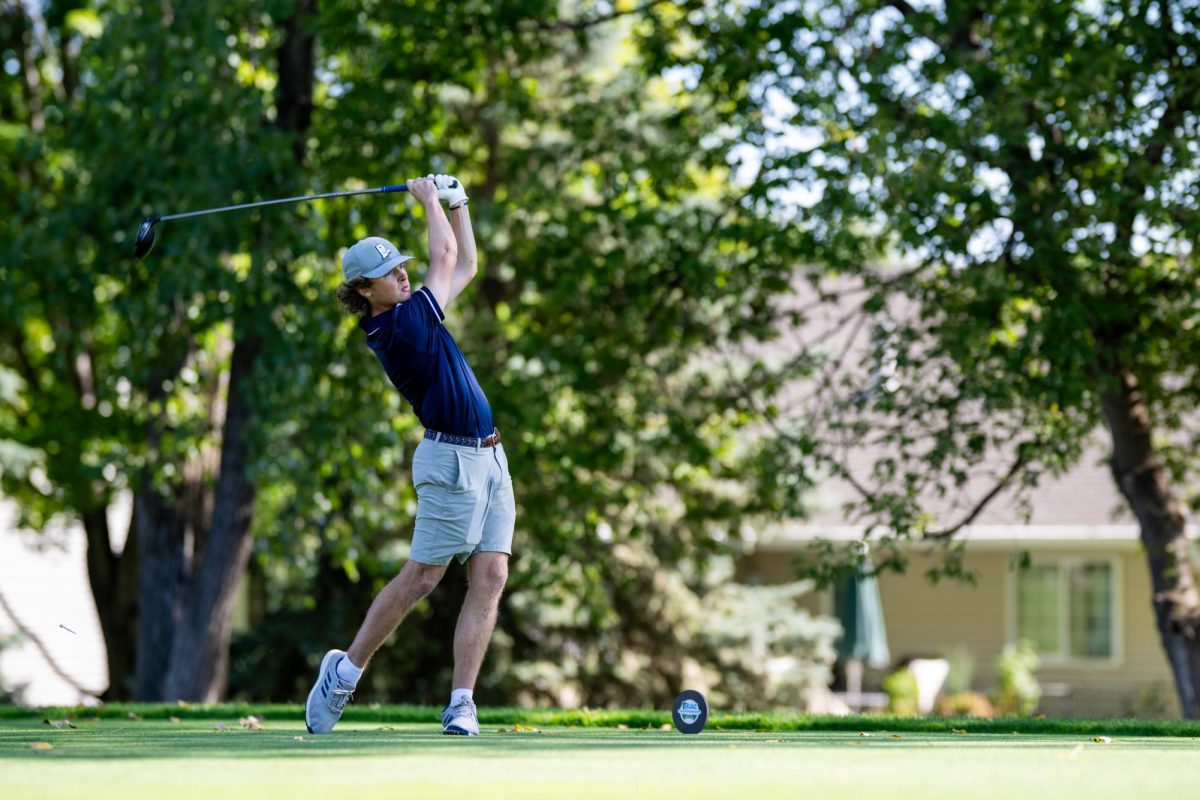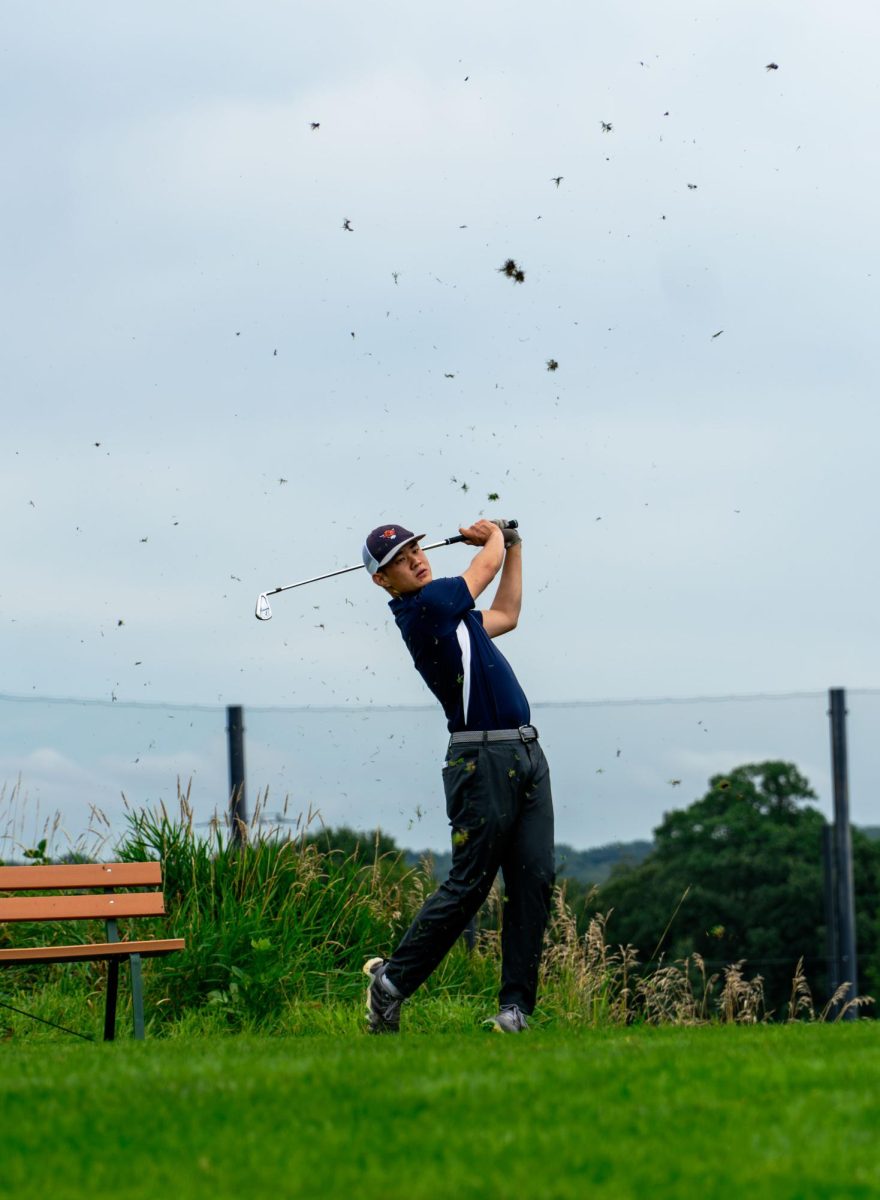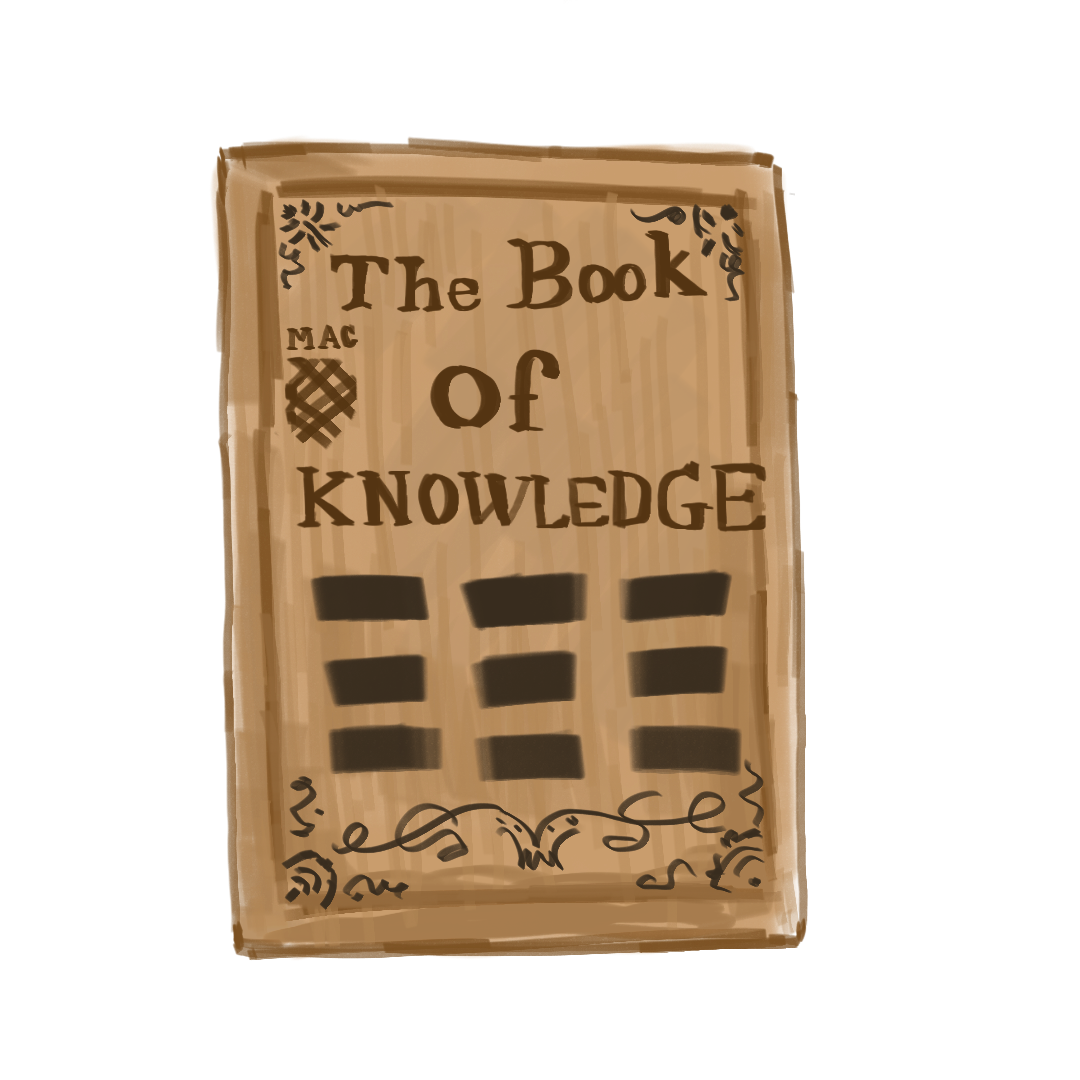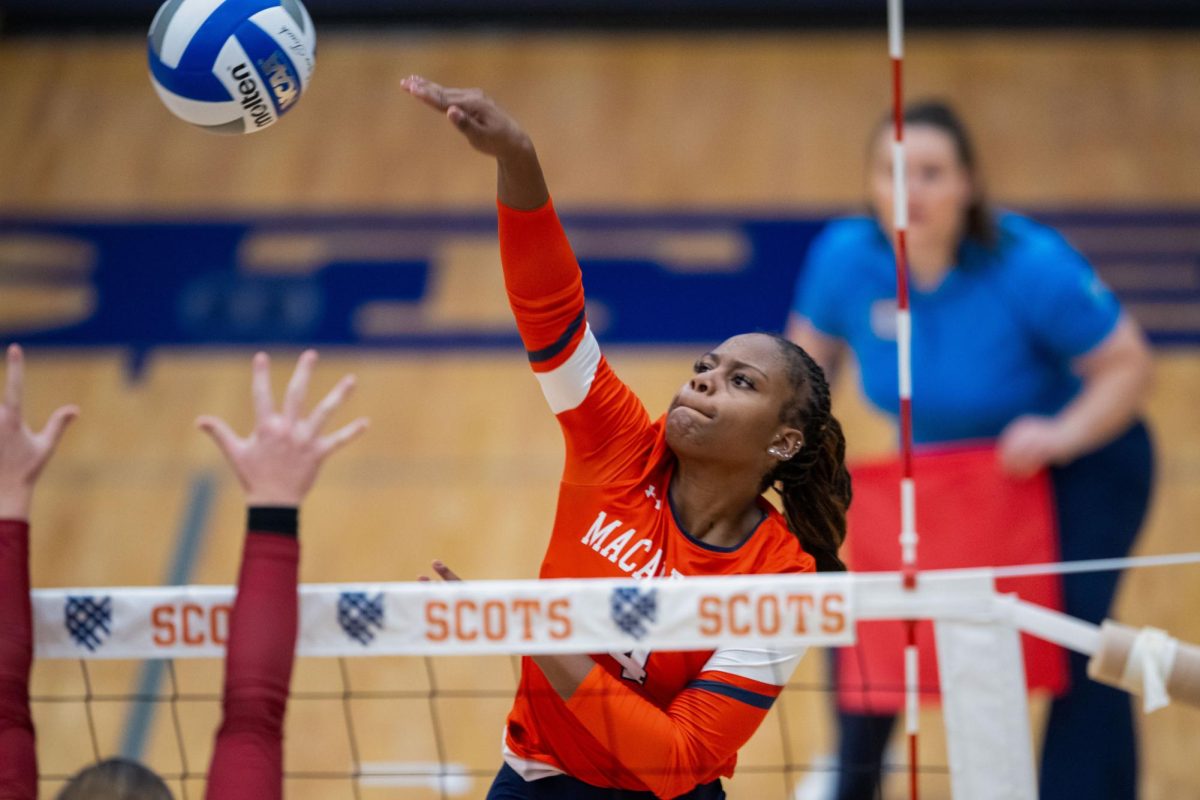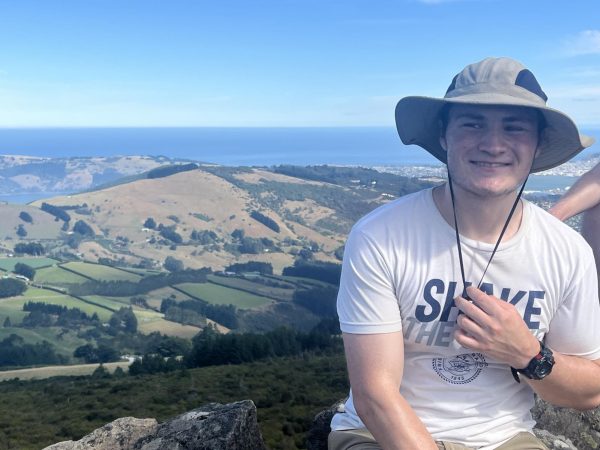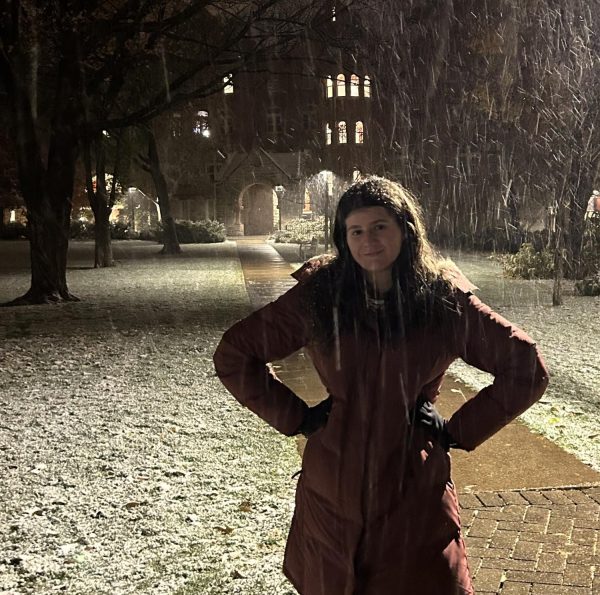Against University of Northwestern (MN) on Nov. 19, the Scots finished the fifth game of this new season with a loss, 83-72. A furious comeback saw them cut a 25-point deficit down to just six, but they came up just short.
The loss sets the Scots back to 1-4 on the young season, all out-of-conference contests, in a year that has already tested the team.
The Scots got off to a slow start. Northwestern was able to build a double-digit lead within five minutes, leaving the Scots on the back foot early. And even though Mac would eventually outscore the visitors in the second half, it wouldn’t be enough to make up the deficit.
Slow starts in the early phases of games have been a consistent Achilles’ heel of the Scots, who have often found themselves forced to play from behind. A 1-4 record to begin the season presents a similarly slow start that these Scots will also look to recover from.
Part of the challenge of the early part of this campaign has emerged from a high degree of roster turnover from the 2023-24 season. That season saw the departure of two key scorers in Caleb Williams ’24 and Coby Gold ’24. On the other hand, two other key players — Noah Shannon ’26 and 2022-23 MIAC defensive player of the year Badou Ba ’25 — are reintegrating into the playing squad after injuries compromised their 23-24 seasons.
These shifts have forced several of these Scots to play in different roles than they’ve been used to, both in replacing on-court production as well as being emotional leaders for a group of teammates and athletes.
“We definitely lost some faces, lost some pretty big roles,” Eric Wentz ’26 said of his increased part in leading this team. “[We’re] trying to fill those shoes, making sure [to not only lead on the court], but also off the court, making sure all the guys get those little things done as well … Especially with the first-years, texting them, making sure they’re doing well in classes, that everything’s going well on the weekends.
Robert Grace IV ’25 — who spent some time away from the squad to focus on a videography project but rejoined midway through the 23-24 season — noted how that sense of shifting roles is nothing new.
“Through my four years, I’ve played a lot of different roles here, but my main thing is just [to] come here and every day, bring the effort, bring the competitiveness and bring the energy,” Grace said. “And so I’ve definitely learned to adapt. And I think everyone can say the same here, but it’s something that we’ve all come together and learned to do together.”
By the end of the first half, the UNW Eagles had flown away from the Scots, taking advantage of the Scots’ 32.0% shooting from the field to assert a 46-23 lead over the home side at the break.
These Scots, though, have already demonstrated an ability to fight back while down. Against Wartburg College on Nov. 9, the Scots were down 16 at the half and fought all the way back to be within a possession and to have one buzzer beater opportunity to win at the game’s end. Although that shot missed its mark and the game ended as a loss, the 14-point resurgence in the second half showed these Scots’ ability to adjust mid-game and play better in crunch time.
Head Coach Abe Woldeslassie ’08 explained in an email to The Mac Weekly that the team is trying to bring the skill they play with in tough situations to the entire game. He takes the second half comebacks as a call to play stronger first halves.
“We have to improve our first half production and play with a greater sense of urgency,” he wrote.
Another notable game was an away matchup against University of Wisconsin-Superior. The Hornets had delivered the Scots a home-opener loss by 15 points in the previous season, but this Scots squad took their opposition down to the wire.
The Scots found themselves down five with just three seconds left, typically an insurmountable deficit. They inbounded to Ryan Brush ’26 who hit a three to cut the lead. With just one second left, Kaden Holdbrook ’27 sprinted in, snagged a wayward inbound from a Wisconsin-Superior player, then laid it in, tying the game as the clock went all zeroes.
Against all odds, they’d forced an overtime period. Their fortune stopped there, though; in overtime, the Hornets held off the Scots, 78- 76.
Willingness to play with maximum effort in the face of almost certain defeat speaks to the mentality of this team. “The buy-in and belief from the players and coaches is there!” Woldeslassie wrote.
In the game against Northwestern, coming out of the half, the Scots kept even with the Eagles. The first half left them at a 21 point deficit, a lead that briefly went out to 25 and hovered around 20.
With 8 ½ minutes remaining, the Scots turned up their intensity in an effort to claw out of what had become a 22-point hole. It was a three pointer from JP Kerrigan ’28 that started a furious comeback. The first-year point guard’s distribution and shooting have been a shot in the arm for these Scots, a first-year injection of talent that has bolstered the team.
Grace characterized this incoming class as strong: “They’re eager, a lot of talent, and I know they’re eager to get out there to help us contribute to a win. They’re definitely some hoopers and some ballers. They’re going to be making some noise all through their four years here.”
The first-years as a whole have also instilled a sense of intrasquad competition. With only five spots on the court, playing time is a limited, zero-sum resource.
Shannon describes this competition as something that keeps the team sharp.
“[Athletics Director Donnie Brooks] always says, ‘the freshmen coming in are like sharks trying to take our spots,’” Shannon recounted. “And that really is true, they come in and they try their hardest to take our spot and to get us better, and then we try our best to keep them out of our spot and make them better. Through that, everyone gets better together, and then whoever’s best plays.”
After Kerrigan’s shot, the Scots went on a tear, fuelled by hot shooting from Brush, Holdbrook and Kerrigan. Brush would end up the top scorer on the night with 26, including 6-of-9 from range. The Scots rained in three pointers; their eventual 10-of-20 on threes in the second half was a testament to the improvement they made going into the second period. With 90 seconds left, a Kerrigan free throw cut the lead to six, but that was as close as they’d get.
The Hornets were able to answer the Scots’ scores and get some stops of their own. Because of take-fouls and free throws, the lead ended up at 11, 83-72.
The close losses that have marked this early season can be frustrating, but Woldeslassie takes encouragement from the positives he finds in this team’s approach to that hardship: “The close losses were not the results we wanted, but all of these games are helping us prepare for the MIAC season ahead.,” Woldeslassie wrote. “It is human nature to get a little down after a loss, but the fight, the belief, and the care for each other is there. As coaches, we are here to teach, support and encourage our players throughout the season.”

